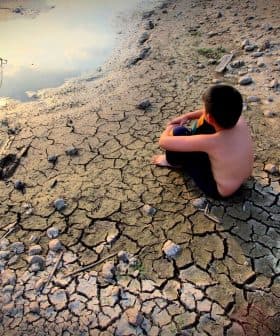Europe Endures Hottest Summer on Record

This summer, Europe experienced its highest average temperatures on record, with heatwaves and record-breaking temperatures affecting various regions of the continent. Globally, August was the joint-third-hottest on record, with extreme heatwaves also impacting olive-growing regions in China and California, leading to significant crop losses and low harvest expectations for the coming year.
The average temperature this summer in Europe was the highest on record, according to data from Copernicus, Europe’s climate change service.
Average air temperatures from June to August exceeded the previous record set in 2021 by 0.4 ºC, with extreme heatwaves hitting the east of the continent in August and record-breaking temperatures scorching the southwest earlier in the summer.
“An intense series of heatwaves across Europe paired with unusually dry conditions have led to a summer of extremes, with records in terms of temperature, drought and fire activity in many parts of Europe, affecting society and nature in various ways,” Freja Vamborg, a senior scientist at Copernicus, told the BBC.
See Also:Drought on Iberian Peninsula Expected to Persist Through November“The data shows that we’ve not only had record August temperatures for Europe but also for summer, with the previous summer record only being one year old,” she added.
This summer saw record-breaking temperatures across many European countries, including parts of France and Portugal. Across the continent, the heat was also accompanied by the worst drought of the past 500 years.
While it is very difficult to determine whether climate change directly caused any individual extreme weather event, World Weather Attribution (WWA) previously concluded that record-high temperatures of 40 ºC in the United Kingdom would have been “extremely unlikely” without human-caused climate change.
The initiative, which involves researchers worldwide, used observational and model analysis to determine that human-caused climate change made the event “at least 10 times more likely.”
They added that in a world with 1.2 ºC cooler average air temperatures, the United Kingdom would have likely been 2 ºC less hot.
At a global level, August was the joint-third-hottest on record, with temperatures exceeding the 1991 to 2020 average for the month by 0.3 ºC.
Outside of Europe, the olive-growing regions of China experienced drought and heatwaves throughout the summer months.
Parts of Sichuan, in the southwest, experienced 70 consecutive days of temperatures exceeding 40 ºC and the lowest water levels on record, resulting in significant crop losses and power shortages.
According to data from the United States Department of Agriculture, China produces about 8,000 tons of olive oil per annum, mainly in Sichuan.
California, which accounts for virtually all olive oil produced in the United States, also witnessed one of its warmest summers.
Earlier this week, parts of the Golden State experienced record-high temperatures. Sacramento, the state capital, recorded a record high exceeding 46 ºC. San Jose did, too, with the mercury nearly touching 43 ºC. Other cities recorded daily record highs, including San Francisco and Salinas.
California producers expect an exceptionally low harvest of 1.8 million tons in the coming crop year, partially fueled by the state’s unrelenting drought.









